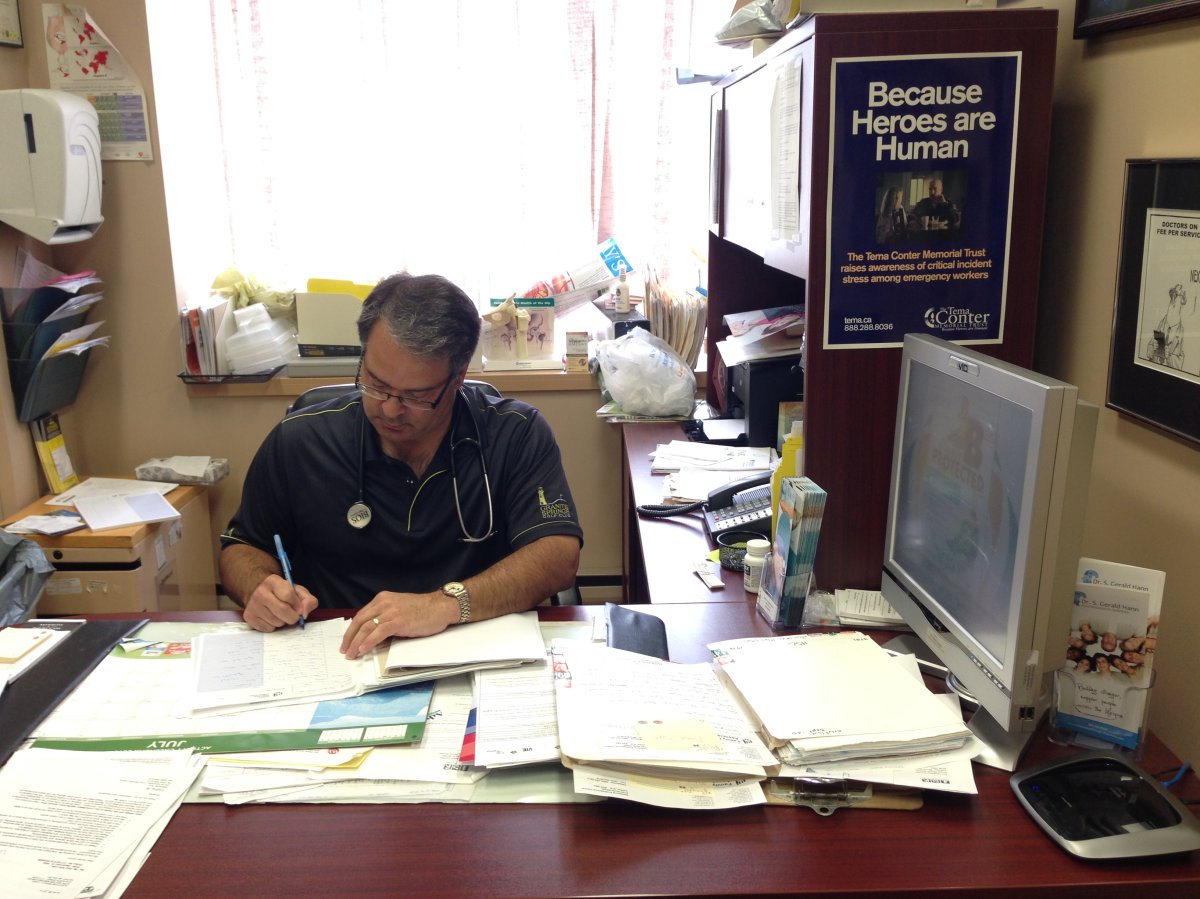HALIFAX – A Halifax family physician says there needs to be more awareness and education around post-traumatic stress disorder (PTSD).

Dr. Howard Conter says he has several patients who suffer from the disorder.
“Along with this comes depression, flashbacks, insomnia, nausea, all the other factors that we associate with normal generalized anxiety disorder and depression but all packed into one,” he explained.
Conter’s connection to PTSD goes deeper than his patients. He’s involved with Tema Conter Memorial Trust, a trust named after his sister Tema who was murdered 26 years ago in Toronto.
He says one of the first responders in Tema’s case, Vince Savoia, ended up developing PTSD as a result, and as part of his therapy eventually contacted the family to create the Trust.
“We said of course we’ll give you the name, but then you’re also stuck with the family,” Conter said. “So that’s how we put our partnership together since that time.”
According to the Trust, at least 15 first responders have committed suicide in the past three months in Canada.
“As shocking as these numbers are, they hopefully serve as a wake up call, that we need to do a better job with all our first responders,” said Conter. “We need to do a better job, we need to educate these people so they can function as paramedics, police and fire and have a normal life and then retire (…) someday without large emotional scars.”
Paul MacKenzie can relate. The former Halifax police officer says he developed PTSD eight years into his career.
“I got myself involved with alcohol and prescription drugs to cope and unfortunately that led me to not a very happy place at the time,” he said.
In 1984, MacKenzie attempted suicide with his service revolver. He says he went into rehab soon after and began to recover.
“From there, it led to being able to help other police officers that were in similar situations.”
He’s now a firefighter and family assistance program coordinator, working in a safe house for first responders in crisis. MacKenzie says there are now several employee assistance programs available to first responders.
“We have peer-driven programs that are available with people that have been particularly trained in critical incident stress management as well as post-traumatic stress disorder,” he explained.
Mackenzie says this latest string of suicides is worrisome and Halifax Regional Police Chief Jean-Michel Blais agrees.
“When people ask what keeps you up at night, that is one of the things,” Blais said. “We should not be afraid to talk about the challenges. We shouldn’t be afraid to go and seek the necessary help.”
Chief Blais says in an effort to find some answers, a strategic plan looking into the prevention and treatment of PTSD and other occupational stress injuries is now being developed. It will be released in September.
- ‘Super lice’ are becoming more resistant to chemical shampoos. What to use instead
- Solar eclipse eye damage: More than 160 cases reported in Ontario, Quebec
- Canadian man dies during Texas Ironman event. His widow wants answers as to why
- ‘Sciatica was gone’: hospital performs robot-assisted spinal surgery in Canadian first




Comments